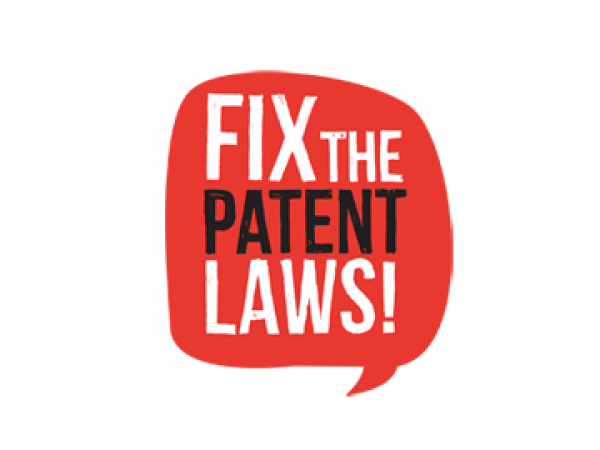How a patent is blocking access to a life-saving TB medicine

Thousands of people in South Africa have drug-resistant tuberculosis (TB). Many of them will die. Death from TB can be slow and horrible. Many of those who do survive will struggle with severe side effects and may need daily pills and injections. Some, like 23-year old Phumeza who described her experience of TB treatment at a Treatment Action Campaign (TAC) press conference last week, will live, but lose their hearing.
Linezolid, made by the pharmaceutical company Pfizer, is one of the only drugs with some proven efficacy in treating drug resistant TB. It is currently sold in South Africa at an unaffordable R676 per pill in the private sector. The state pays R288 per pill. It must be taken daily for up to two years.
Médecins Sans Frontières (MSF) would like to treat 300 drug resistant TB patients in Khayelitsha with linezolid, but can only afford to buy the drug for little more than 20 patients. Right now, MSF doctors are in the horrible position of having to decide who gets the drug and who does not.
Linezolid is not particularly expensive to make. A generic version is available in India for a mere R25 per pill. Had South Africa been able to import the Indian generic, MSF would likely be able to treat all 300 patients in Khayelitsha who need the drug.
However, mostly because of South Africa’s outdated patent laws, MSF cannot legally import the Indian generic, nor does it seem there is any workable way in which to force Pfizer to lower their price. The only option open to MSF so far has been to ask Pfizer – a request to which Pfizer has so far been indifferent.
On 4 September, the Department of Trade and Industry (DTI) released South Africa’s much-anticipated Draft National Policy on Intellectual Property (IP) for public comment. This policy could in time provide us with the legal tools to deal more effectively with issues like the lack of access to linezolid.
The policy is not just about TB though, it will also impact the ability of medical schemes to pay for their members’ cancer or heart disease medicines. The intricacies of patent law quickly become highly contested. Given the consequences this policy could have on healthcare in South Africa and the affordability of National Health Insurance, it is essential that this is not just a debate between industry lawyers, but between people from all sectors of the health system and broader society.
The policy will lead to the first substantial intellectual property law reforms in decades. It provides an opportunity to recalibrate the existing framework to better serve the public interest. Section 27 of the Constitution places an obligation on the state to take reasonable legislative measures to ensure the progressive realisation of the right to access healthcare, and to consider the impact policy will have on people’s daily lives. This process cannot be allowed to be hijacked by narrow economic interests.
The draft policy explicitly acknowledges that access to healthcare must be considered when developing patent law. The drafters understand that access to generic medicines, like the Indian generic of linezolid, is in the public interest. This is a major step in the right direction – for which the DTI must be commended.
Rebalancing the patent system is nothing new, and South Africa is by no means the first country to take such steps. Under international law (the WTO’s TRIPs Agreement) all countries are able to protect the right to health. There are a host of safeguards deliberately built into the system that aim to balance the rights of patients with the private interests of patent-holders.
Other developing countries - such as India, Brazil, Argentina and Thailand - have led the way in proactively incorporating these WTO-sanctioned safeguards into their national laws to protect public health.
It is not only patients who benefit. These legal safeguards also promote local generic manufacturing. That is in part why India is in a position to supply roughly 80% of the medicines used in Africa. The industry versus patients frame in which the patent debate is frequently presented is misleading. Since the majority of the South African pharmaceutical industry makes generic medicines; both industry and patients stand to gain from legislation that enables quicker access to cheaper generic medicines.
This is the first part of a two-part opinion piece. Marcus Low is the editor of the Treatment Action Campaign’s magazine, Equal Treatment. You can follow him on Twitter @marcuslowx.
Support independent journalism
Donate using Payfast


This article is licensed under a Creative Commons Attribution-NoDerivatives 4.0 International License.
